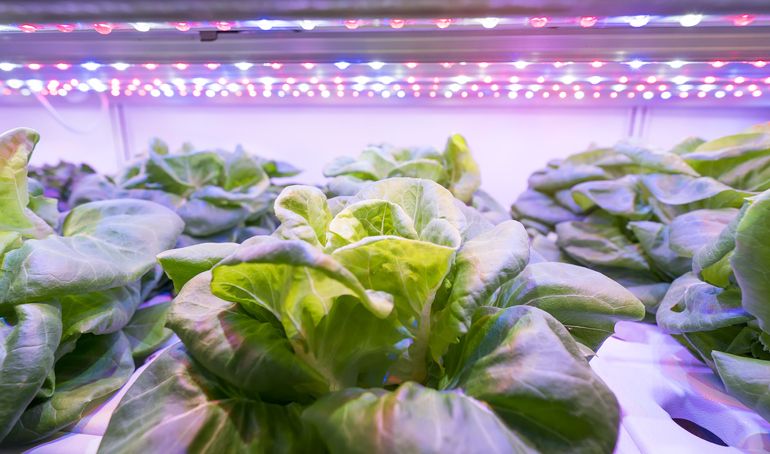Editor’s note: Leonard Lerer is founder and CEO at Back of the Yards Algae Sciences (BYAS), a Chicago, US-based biotech company developing sustainable novel ingredients derived from algae.
BYAS is a graduate of the GROW Impact Accelerator, which is affiliated with AFN’s parent company AgFunder.
As the global population rapidly urbanizes, we need to move our agricultural production to within urban and peri-urban areas. The environmental and social costs of large-scale, industrial farming are huge, and include the fallout from widespread pesticide and chemical use, the depletion of land resources, and the progressive depopulation of rural areas.
In regions where land is at a premium or climatic conditions are not favorable for outdoor farming, the only alternative is the controlled environment agriculture (CEA) ‘plant factory’ – whether an indoor, vertical, or greenhouse-based facility.
The advantage of CEA is clear: safer, standardized, pesticide-free produce with short delivery ‘circuits’ that are less polluting.
The flipside is that the jury is still out as to whether indoor or vertically farmed produce can be considered especially sustainable given lighting energy costs in particular. If these energy input costs could be reduced, then the door opens to using vertical farming as a production system for food staples such as wheat, corn, and soy.
The current energy use reduction effort in CEA is largely focused on improving lighting technology with the goal of greater energy efficiency and ‘tuning’ light frequencies to the photosynthetic needs of plants. But perhaps there are other approaches to support the transition of indoor and vertical farming into an incontrovertible part of the urban food chain?
Recently published research from BYAS offers the exciting prospect of moving vertical farming past the economic and environmental sustainability barrier. This is the opportunity to transform indoor and vertical farming from simply a source of leafy greens, vegetables, and small fruits into a real, long-term pillar of urban food security.
At the heart of this promising approach is the application of an algae-based biostimulant to significantly reduce growing time, thereby saving energy and increasing profitability. After more than two years of intensive research, BYAS has developed a proprietary microalgae extract that shortens the time between planting and harvesting in leafy greens and vegetables. This phycocyanin-rich spirulina extract (PRSE) is part of the BYAS portfolio of alternative proteins, including food colorants and plant-based meat ingredients.
Published research shows that PRSE is effective as a biostimulant in hydroponics, improving growth, yield, and quality of lettuce while cutting maturation time by six days (about 21%.) PRSE-treated lettuce showed a 12.5% increase in yield, a 22% increase in photosynthetic efficiency, a mean increase of 2.6 cm in leaf length and 2.2cm in basal stem diameter. In a shelf-life test, wilting was seen two to three days after it was observed in control groups. The treated groups were a brighter green (specifically 17% brighter and 75% greener) and better tasting. They had firmer texture, stronger aroma, and more intense flavor than the untreated group, according to an independent certification agency.
Using high-performance liquid chromatography analysis, the BYAS team also examined nutrient content showing that PRSE-treated lettuce had 30% more of the flavonoid, quercetin.
Natural biostimulants offer vertical farmers a new avenue for reducing energy inputs, while the improvement in product quality will assist in improving profitability by ensuring better selling prices. The most exciting aspect of developing natural biostimulants specifically for vertical farming is the possibility to extend the indoor farming sector into row crops as food staples, ensuring not only better and more secure food supplies for urban populations, but also protecting the planet.





